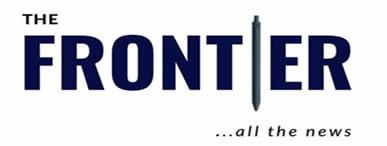•CBN Governor Olayemi Cardoso
Huge crowd besieged banking halls yesterday, as customers moved to link their Bank Verification Numbers and National Identity Numbers to their bank accounts.
This followed the new directive of the banking regulator to the banks on Friday, to bar customers who were yet to link their BVN and NIN from having access to their accounts, reports The PUNCH.
CBN said in its new directive that existing customers must, “Ensure all operated accounts/wallets created through agents, are fully profiled in the NIBSS ICAD and tagged with valid and correct BVN and/or NIN.”
It added that, “Effective immediately, any unfunded account/wallet shall be placed on ‘Post no debit or credit’ until the new process is satisfied.
“Effective March 1, 2024, all funded accounts or wallets shall be placed on ‘Post no debit or credit’ and no further transactions permitted.”
Post no debit is a term used to describe a restriction imposed by banks on specific accounts, preventing customers from making withdrawals, transfers, or debits from their accounts.
While observing customers’ response to the new directive, our correspondent saw large customers at the Ojodu/Berger branches of Zenith Bank, Guaranty Trust Bank and First Bank, who came to link their NIN to their bank accounts. The queues at GTBank remained long as of the time our correspondent left the bank.
An official of First Bank, Akure, Ondo State, who pleaded anonymity, said there was more crowd in the bank than usual.
“There are more people in the bank today to do one thing or the other, most especially the connection of their Bank Verification Number,” he said.
A senior official of a Tier-1 bank in Lagos in an interview with our correspondent said, “The truth is that many banks will find it difficult to cope with the anticipated rush as we have lost several key employees to the Japa syndrome. Besides, the banks had embarked on staff rationalisation to keep the operating expenses low.”
A branch manager of a new generation bank, also in an interview with our correspondent, said if the rush of customers without BVN and NIN was much, the lender would have no choice but to extend the working hours for its employees, and might consider working on Saturdays and Sundays to clear the backlog.
Latest Data obtained from the Nigeria Inter-Bank Settlement System showed that over 75 million bank accounts could be restricted or outrightly blocked as only 59 million BVN was registered as of October 9, 2023.
Also, despite the CBN’s directives to the banks to continue to issue, accept old and redesigned naira banknotes, scarcity of the local currencies has persisted.
It was observed that banks continued to ration the naira notes to customers in the banking halls, while Automated Teller Machines were programmed to dispense limited cash.
Our correspondent who visited the ATMs at FCMB, Gate, Ejigbo, observed that customers who went to withdraw cash were disappointed they were not dispensing cash.
When our correspondent asked some officials of the bank why there was no cash for withdrawal, they said the bank did not load cash into the machine.
At GTBank, Gate Ejigbo, ATM’s were dispensing maximum of N5,000 to non-bank customers, while customers of the bank could withdraw up to N20,000.
ECO Bank at Gate, Ejigbo paid non-bank customers up to N10,000, while bank customers could withdraw as high as N20,000.
Operators had linked the cash scarcity which commenced in recent weeks to fear that the banking regulator may ban some old denominations by year end.
However, to alleviate the fear, the acting Director, Corporate Communications, CBN, Mrs Sidi Hakama, in a statement, said, “Following the order of the Supreme Court on Wednesday, November 29, 2023, granting the prayer of the Minister of Justice and Attorney-General of the Federation to extend the use of old naira banknotes ad infinitum, the CBN has directed all its branches to continue to issue and accept all denominations of Nigerian banknotes, old and re-designed, to and from Deposit Money Banks.
“For the avoidance of doubt, the Supreme Court ordered that the old versions of N200, N500 and N1,000 banknotes shall continue to be legal tender, alongside the re-designed versions.”
Some of the spokespersons of the banks who would not want to be quoted told our correspondent that there was no new directive from the CBN to limit the cash transactions to customers.
“The scarcity could be due to some cash hoarded that have not been returned back into the economy,” a bank source said.
























